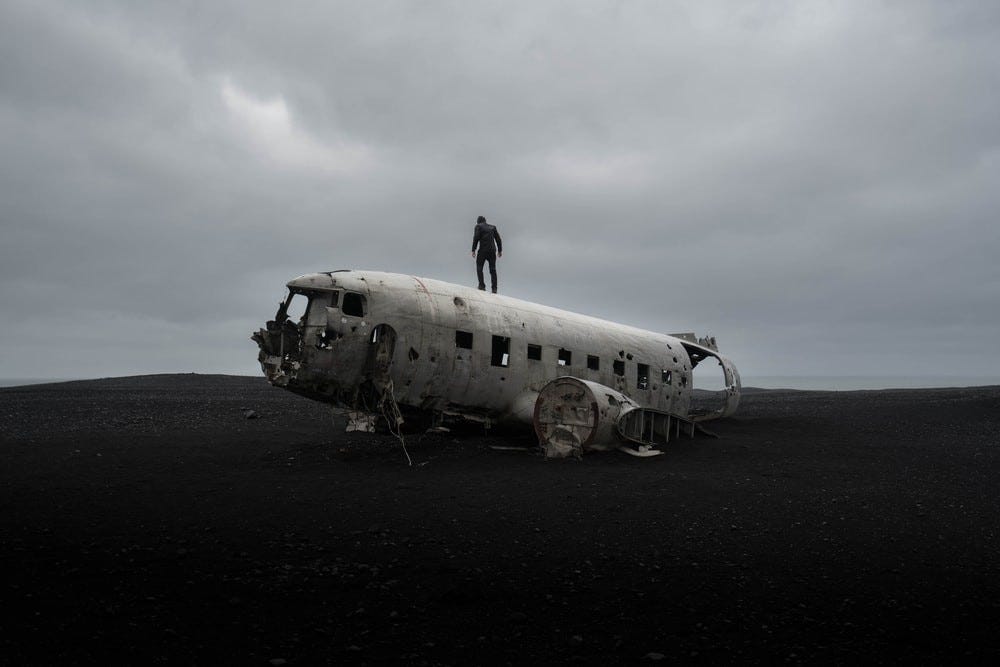
Somebody had to be the last person alive on Earth, and Dan Mori knew he was the one.
He checked the seals of his white BSL 4 biohazard suit and twisted the ring that secured the hose that ran between the oxygen tank and his suit, even though it was already as tight as it could be. He had procured the O2 tank and the twenty others that preceded this one from a medical supply warehouse eleven blocks away on Niver and 18th Streets, transporting them two at a time in a shopping cart. He could only carry one at a time to apartment 22B, where he lived.
Although there was almost no chance he would catch the deadly Xom virus in his apartment, Dan believed it was his utmost vigilance and unwavering adherence to his strict, self-imposed protocols that kept him alive. He took no risks and gave the virus no opportunity to find a way into his lungs.
At home, except when eating and using the toilet, he wore the biosuit. He thought the layer of grime and grease on his body helped protect him from viral invasions, so there was no need for a bath. And besides, it was too much work to carry bathing water up so many flights of stairs.
He thought that in twenty years the virus might have gone to ground and the world would be safe enough for him to move to a forest near a waterfall. He’d shower then.
The need for food, water, and oxygen forced him outside once a week. When outdoors, he wore two N95 masks, double nitrile gloves, a Tyvek suit, a 360-degree Plexi helmet, and shoe covers. From the moment he stepped out his apartment's door until it closed again behind him, his heart raced and goosebumps covered his skin. He walked fast to finish his supply runs, but not so fast that an increased breathing rate might suck in a viral particle.
Securing supplies and disinfecting them consumed many hours each day. In his few spare minutes, he reread the same six books he owned or laid in his bed looking at the ceiling.
Dan ate canned food for breakfast and dinner, his two meals a day. He liked Spaghetti-O's, but anything was fine, including chicken soup, canned peaches, corned beef, curry, and black beans. He was grateful for his hand-operated can opener. It’s the little things that make life easier, he thought.
He drank room-temperature beer and bottled water.
While eating, he wore a face shield, scooping spoonfuls of food under that shield. He timed his meals to be sure to finish in under three minutes.
Soon after the first reports of the Xom’s one-hundred percent lethality, Dan recognized the pandemic’s likely course and procured a solar-powered battery, as well as other supplies, including a first aid kit and the bio-containment suit, the same kind worn by researchers who studied deadly pathogens. He charged the battery during the day and used it to power his only working appliance, a HEPA air filter, which he kept close, making eating safer.
Dan guessed it was August because he sweated like it. But it could be July or even September. Dan wished he had a book about using the sun and stars to calculate the seasons, and he supposed he could find one in a library or bookstore, but it wasn’t essential and certainly not worth the risk.
He piled his trash in the guest room of his three-bedroom apartment. He had bought this place two years ago in the hope of finding a wife and having children. The other room was currently empty, but he figured he’d need it for trash sooner rather than later.
From his apartment, he watched a dog tear apart a corpse, a rare sight because there were few dead bodies outside. After four weeks of the pandemic, there weren’t enough doctors or nurses alive for hospitals to function, so most people stayed in and died in their homes. Some died in their cars.
He wondered if people died in the subway.
From time to time, Dan considered forgoing the bio-containment suit and just wearing a full face mask attached to an O2 tank on wheels while at home, which would give him more mobility. But that would be another unnecessary risk.
He checked his solar-powered flashlight's battery level: 80 percent. Enough to read two chapters in one of his six paralegal textbooks. Or maybe instead, he'd clean his face shield with ninety percent isopropyl alcohol solution, count the total number of calories contained in his stockpile of cans, or organize his vitamins and supplements by expiration date.
The full moon illuminated Dan's living room. He decided to read tonight by moonlight. Dan recalled a poem about the moon, something involving a cat and violin, but couldn't remember the whole thing. Maybe he'd remember it tomorrow, but he doubted that.
If you enjoyed The Last Person Alive on Earth, I think you’ll also like my story, Lockdown.
Readers inspire me to write. If you’re not a subscriber, I’d be delighted if you became one. My weekly short story newsletter is free.




Must be a lonely life! Is it worth it? Is he hoping to find someone else alive? I think if there was a natural disaster I’d just succumb to it with everyone else.
Shades of what is happening with COVID. The last year has been one of hiding from disease. Not much of a life, eh?